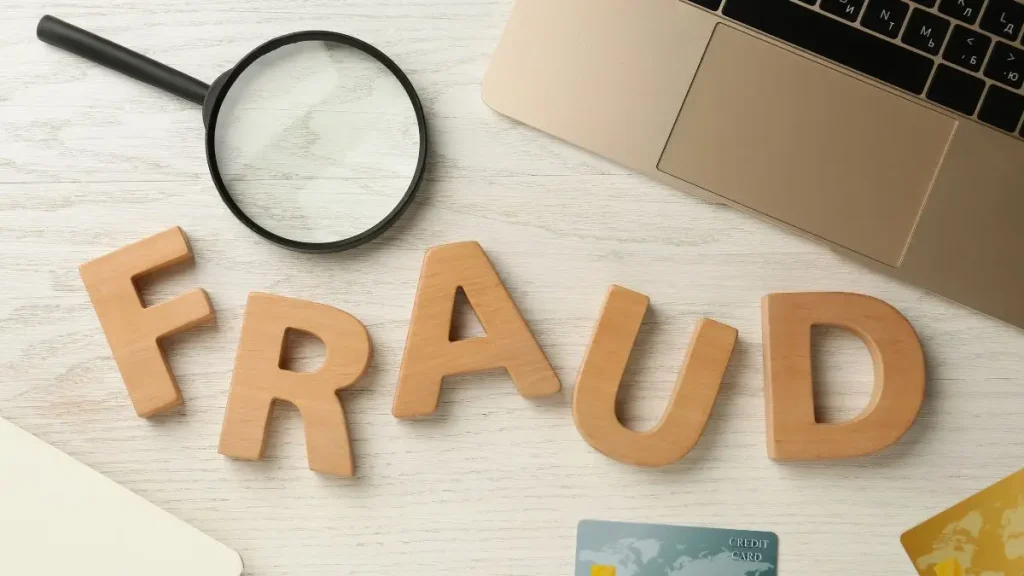California Real Estate Fraud Laws Tighten Amid Rising Scams
I’ve seen it happen too many times—homeowners losing their life savings to schemes they never saw coming. And the truth is, real estate fraud in California isn’t just a headline; it’s a daily risk. In 2023 alone, the state reported over 1,500 cases of real estate fraud, with victims losing nearly $25 million.
If you’re buying, selling, or even renting property, you could be a target without even knowing it. Scammers have become more sophisticated, using wire fraud, fake foreclosure assistance, and rent-skimming schemes to trick unsuspecting people.
I want you to understand this: these scams aren’t just about money. They can threaten your home, your credit, and your peace of mind. That’s why staying alert and knowing what to look for isn’t optional—it’s essential.
In this article, I’ll break down exactly how California real estate fraud works, what the law says, and practical steps you can take to protect yourself. By the end, you’ll know what to watch for and how to act before it’s too late.
Understanding California Real Estate Fraud Laws

Let’s get real: most people think “real estate fraud” is just signing the wrong papers or missing a fine print. But in California, it’s much broader—and the penalties are serious. The law doesn’t mess around.
Real estate fraud happens when someone lies, misrepresents, or conceals facts during the purchase, sale, rental, or financing of property. That could mean anything from filing forged documents, hiding defects in a house, to scamming someone during foreclosure.
According to Cal Matters, California led the nation in real estate fraud cases in 2023, reporting over 1,500 incidents and nearly $25 million in losses. That’s not just numbers; those are real homeowners losing real money.
The state uses a mix of criminal and civil laws to tackle these scams. For example:
- Grand Theft (Penal Code 487): Taking property or money by lying or making false promises.
- Foreclosure Fraud (Civil Code 2945.4): Misleading homeowners during the foreclosure process.
- Rent Skimming (Civil Code 890): Collecting rent from tenants while pretending to own a property you don’t.
- Filing Forged Documents (Penal Code 115 & 470): Forging deeds, contracts, or mortgage papers to deceive buyers, sellers, or authorities.
These are called “wobbler” offenses, meaning they can be charged as a misdemeanor or felony depending on the severity. And make no mistake—a conviction can mean prison time, huge fines, and restitution.
Understanding the law isn’t just academic—it’s your first line of defense. If you know what counts as fraud, you can spot it before it hits your wallet or your home.
Common Types of Real Estate Fraud in California
If you’re like most homeowners, you probably think fraud only happens to other people. But the truth is, scammers are everywhere, and the tricks keep evolving. Knowing the common types is the best way to protect yourself.
According to the EG Attorneys, California sees a variety of real estate fraud schemes every year—some target buyers, some sellers, and some renters. Here’s what you need to watch out for:
1. Grand Theft in Real Estate Transactions (Penal Code 487)
This is when someone uses lies or false promises to take property or money that isn’t theirs. For example, a seller might claim full ownership of a property while hiding a lien, or a buyer might falsify funds to secure a home. In either case, the law sees this as theft by false pretenses.
2. Foreclosure Fraud (Civil Code 2945.4)
After the 2008 recession, foreclosure fraud became a huge problem. Some companies promise to help desperate homeowners but instead charge excessive fees, take ownership stakes improperly, or disappear with the homeowner’s money. If you’re facing foreclosure, always double-check the credentials of anyone offering help.
3. Rent Skimming (Civil Code 890)
This scam usually targets tenants. The fraudster pretends to own a property and collects rent without paying the mortgage—or without actually owning the place at all. Tenants often only realize the truth after months of paying rent.
4. Filing Forged Documents (Penal Code 115 & 470)
Fraudsters sometimes forge deeds, contracts, or disclosure forms to mislead buyers, sellers, or the government. This could involve forging a mortgage contract or hiding defects in a property. Filing forged documents is a serious crime that can lead to both criminal and civil consequences.
Knowing these schemes isn’t just about staying informed—it’s about spotting red flags before they cost you thousands, or even your home.
When a property goes under contract, there are steps every buyer and seller should take to avoid being misled—our 10 essential actions after your home goes under contract can help you stay safe.
Recognizing the Red Flags of Real Estate Fraud

You might think, “I’d never fall for a scam.” But these fraudsters are skilled—they know how to look legitimate. The key is knowing what to watch for.
- Unsolicited Offers: If someone contacts you out of the blue with a “can’t miss” deal, be suspicious. Legitimate real estate transactions don’t come with pressure tactics.
- Pressure Tactics: Scammers often push for quick decisions or immediate payments. That’s your cue to slow down.
- Suspicious Documents: Fake deeds, forged contracts, or missing disclosure forms are huge red flags. Always verify documents with authorities or a trusted attorney.
- Unclear Communication: If the buyer, seller, or “helper” refuses to provide verifiable information or avoids questions, step back.
Even official sources warn about this. The California Department of Real Estate regularly posts alerts about current scams targeting homeowners. Following their guidance can save you from losing thousands.
Sometimes even services that seem helpful, like home warranty providers, can be risky—here’s a deep dive into the American Home Shield scam that shows how homeowners can be caught off guard.
Defending Against Real Estate Fraud Charges
Sometimes, it’s not just about avoiding scams—you could be accused wrongly. If that happens, understanding your defense options is critical.
- Intent Matters: Fraud requires proof that you intended to deceive. A bad deal isn’t automatically a crime.
- Documentation is Key: Keep records of contracts, emails, and communication to prove your honesty.
- Pre-filing Intervention: Experienced attorneys can sometimes intervene before charges are filed to reduce or dismiss allegations.
If you or someone you know is facing real estate fraud allegations, don’t wait—seek a knowledgeable defense attorney immediately. Early action often makes a huge difference.
Preventative Measures for Homeowners

I can’t stress this enough: prevention is your best weapon. These steps will help you protect your property and peace of mind:
- Monitor Property Records: Check county records regularly to ensure no unauthorized changes.
- Verify All Parties: Always confirm the identity and legitimacy of buyers, sellers, brokers, and lenders.
- Use Legal Counsel: Have a real estate attorney review contracts, especially for high-value transactions.
- Beware of “Too Good to Be True” Offers: If it sounds too easy or too cheap, it probably is.
- Fraud Alert Programs: Some counties, like Tuolumne and Calaveras, offer alerts for unauthorized property filings.
By staying vigilant, you reduce the chance of falling victim—and can spot suspicious activity early, before it becomes a costly problem.
If you want quick alerts about scams and updates on real estate fraud, there’s a community on WhatsApp sharing real-time tips—many homeowners have found it useful to stay one step ahead.
Expert Advice & Legal Insights
When it comes to real estate fraud, I always tell homeowners: don’t rely on luck—rely on experts. Lawyers and real estate professionals have seen these scams firsthand and can guide you through transactions safely.
- Legal Counsel Recommendations: Experienced California real estate attorneys advise verifying every document, double-checking ownership records, and never wiring money without confirming the recipient.
- Preventative Strategies: Use escrow services, authenticate sellers, and document all communication. These small steps can prevent huge losses.
- Stay Updated: Follow official channels like the California Department of Real Estate and legal blogs for alerts on emerging scams.
Listening to experts isn’t just smart—it’s the difference between protecting your home and becoming a statistic.
Preventative steps aren’t limited to fraud; even small oversights, like failing to disclose certain property history, can lead to legal issues—learn why in this guide on avoiding lawsuits in California.
Community Awareness & Reporting Mechanisms
You’re not alone in this. The community plays a big role in stopping fraud. If you spot suspicious activity, reporting it can prevent someone else from losing their home or savings.
- Report to Authorities: Notify the California DOJ, local police, or the DRE if you suspect fraud.
- Online Resources: Check official sites like dre.ca.gov for fraud alerts and guidance.
- Share Knowledge: Talk to neighbors, friends, or online forums to spread awareness. Fraudsters often rely on secrecy—transparency is your shield.
By staying alert and proactive, you contribute to a safer housing market for everyone.
Key Takeaways
Here’s the bottom line: California real estate fraud is real, costly, and constantly evolving. But with awareness, vigilance, and the right resources, you can protect yourself and your home.
- Be Informed: Know the types of fraud and legal protections available.
- Trust but Verify: Double-check documents, identities, and claims.
- Take Action Quickly: If something feels off, pause, investigate, and consult experts.
- Stay Connected: Follow local alerts and community discussions to spot trends early.
I want to ask you—after reading this, are you confident that your property is safe from fraud? Take a moment to check your records or speak to a professional. Even one small step today can save thousands tomorrow.
For more tips on home protection, real estate scams, and legal insights, visit our Government & Policy category.
Disclaimer: This article is for informational purposes only and does not constitute legal advice. Always consult a licensed attorney for guidance on real estate fraud or related legal matters. The author and publisher are not responsible for actions taken based on this content.


